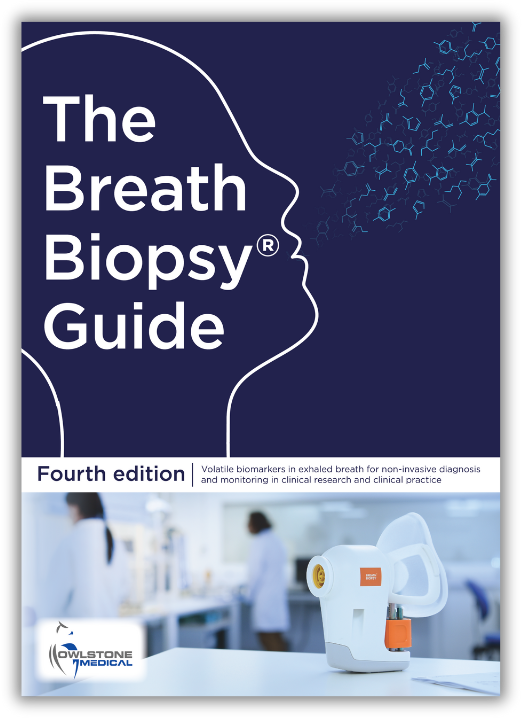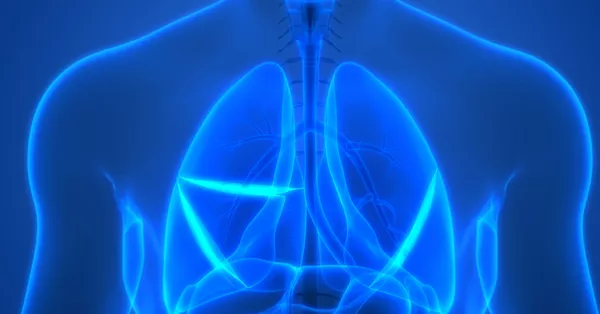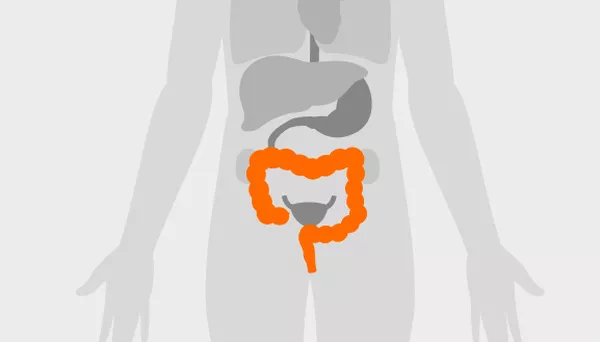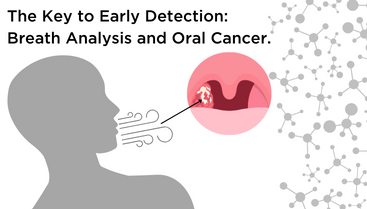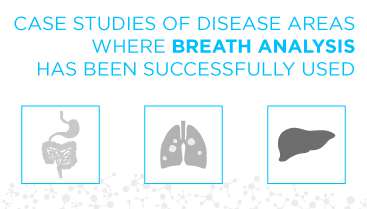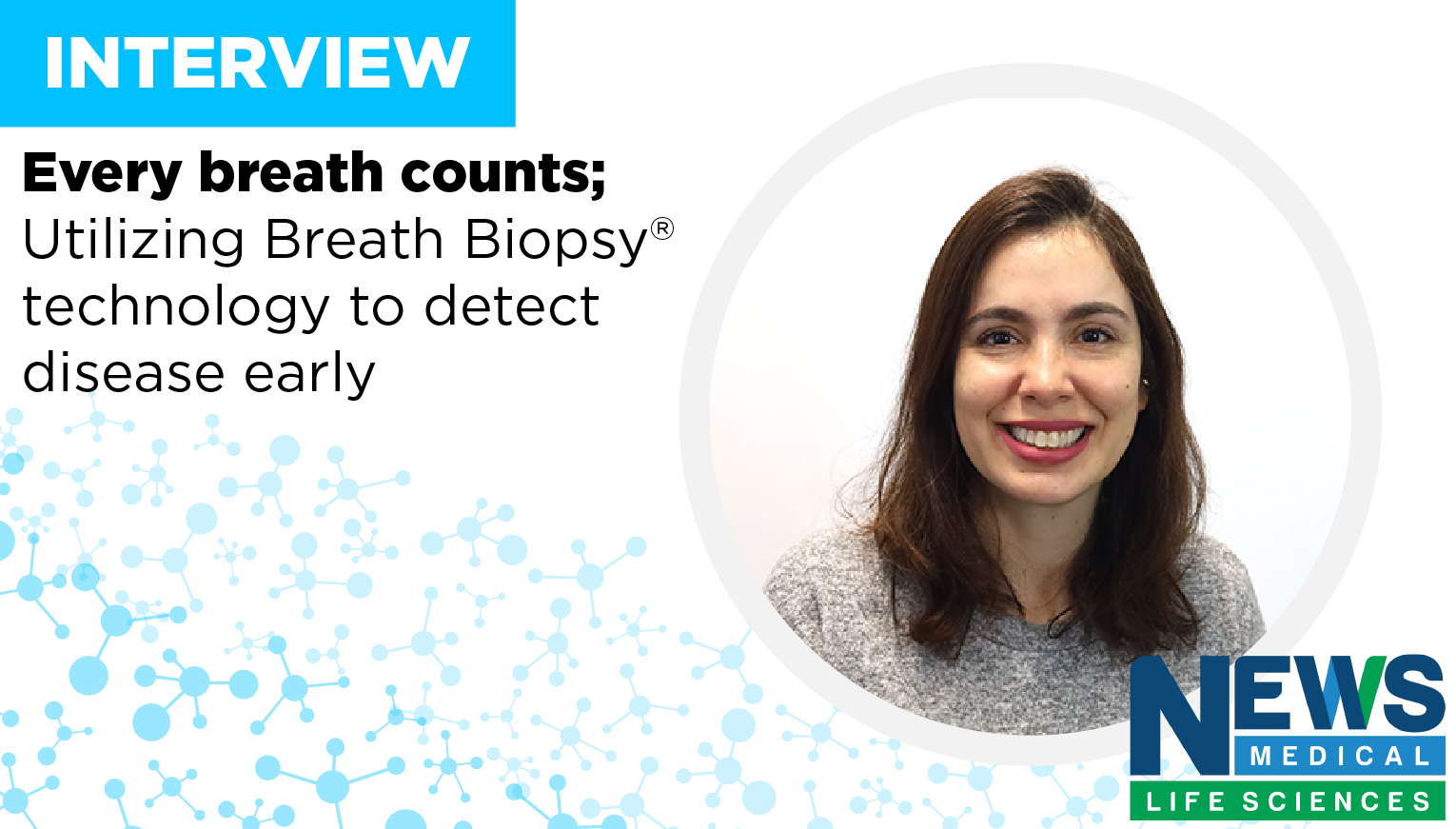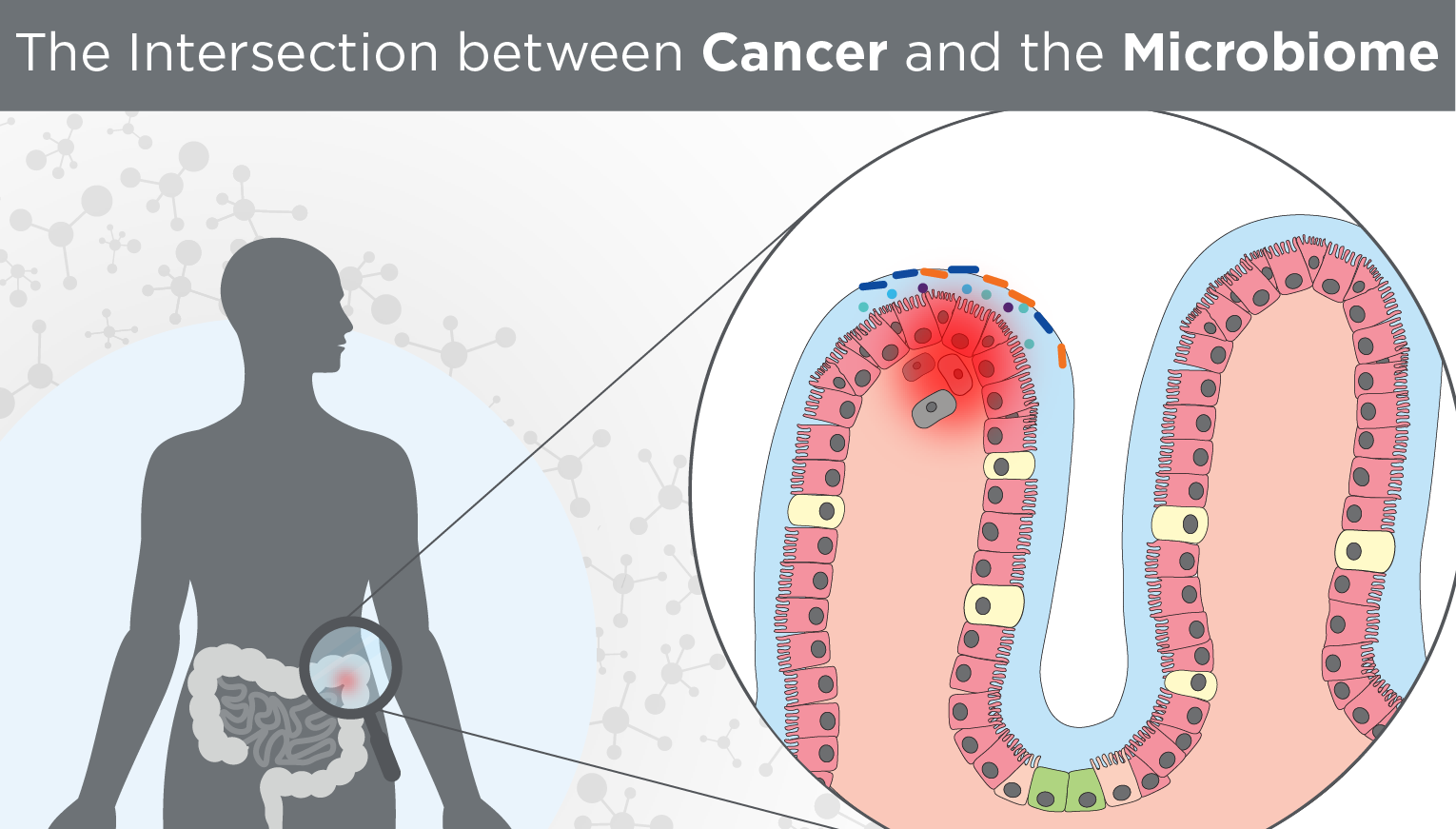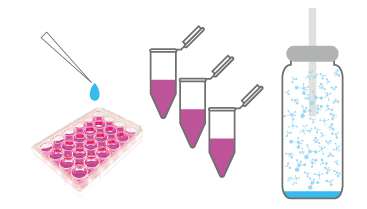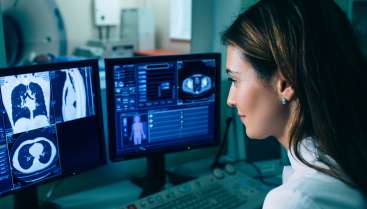One in two people will get cancer in their lifetimes.
Globally, lung cancer is the most common cancer in the world with over 2 million diagnoses estimated in 2020. If detected early, the chance of surviving cancer is ten times higher, and the cost of treatment is ten times lower than in the later stages. Therefore, developing new early cancer detection methods is the best way to improve cancer survival.
Our breath test developed to enable lung cancer early detection is currently being tested in a phase 2 clinical trial and involves the use of an Exogenous Volatile Organic Compound (EVOC®) Probe administered from outside the body to target specific cancer pathways. Our work suggests that almost 90% of Stage I lung cancers can be targeted, with the potential to have a transformative effect on lung cancer detection.
Breath offers a unique roster of potential biomarkers arising from metabolic pathways in the body that may be disrupted in cancer, that can be collected completely non-invasively. This makes breath an advantageous biomarker matrix to study in comparison to more expensive, more invasively acquired samples such as tissue biopsies that are difficult to tolerate.
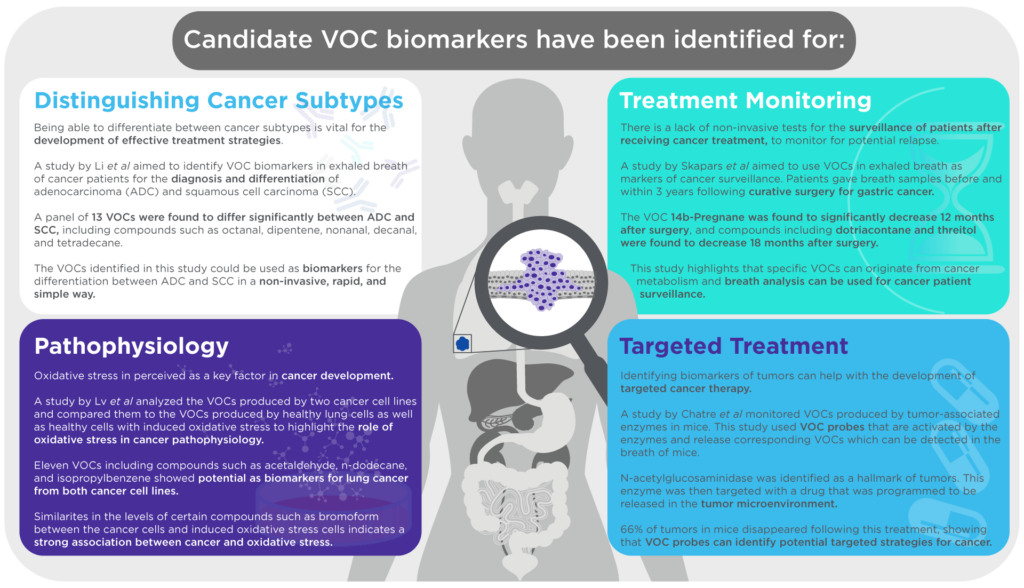
FURTHER READING
Other recommended reading:
- NEWS: BBC’s ‘Look East’ news program featured Owlstone Medical’s latest trial, a Phase 1a/1b clinical trial for breath-based lung cancer detection using a metabolic probe targeting tumor specific extracellular β-glucuronidase.
- PRESENTATION: A Pragmatic Approach For Lung Cancer Screening Using Exhaled Breath In A Clinical Setting. – Dr. Pedro Vaz at BBCon 2023
- REVIEW: The potential of breath analysis to improve outcome for patients with lung cancer.
- PRESENTATION: Progress in the Development of a Breath Biopsy Test for the Early Detection of Lung Cancer; The LuCID and Evolution Studies. Dr. Robert Rintoul at BBCon 2023.
- POSTER: Using exogenous volatile organic compound (EVOC) probes to target tumour-associated aldo-keto reductase activity: a potential tool to detect lung cancer.
Download the Breath Biopsy Guide to learn about breath biomarkers and their applications
